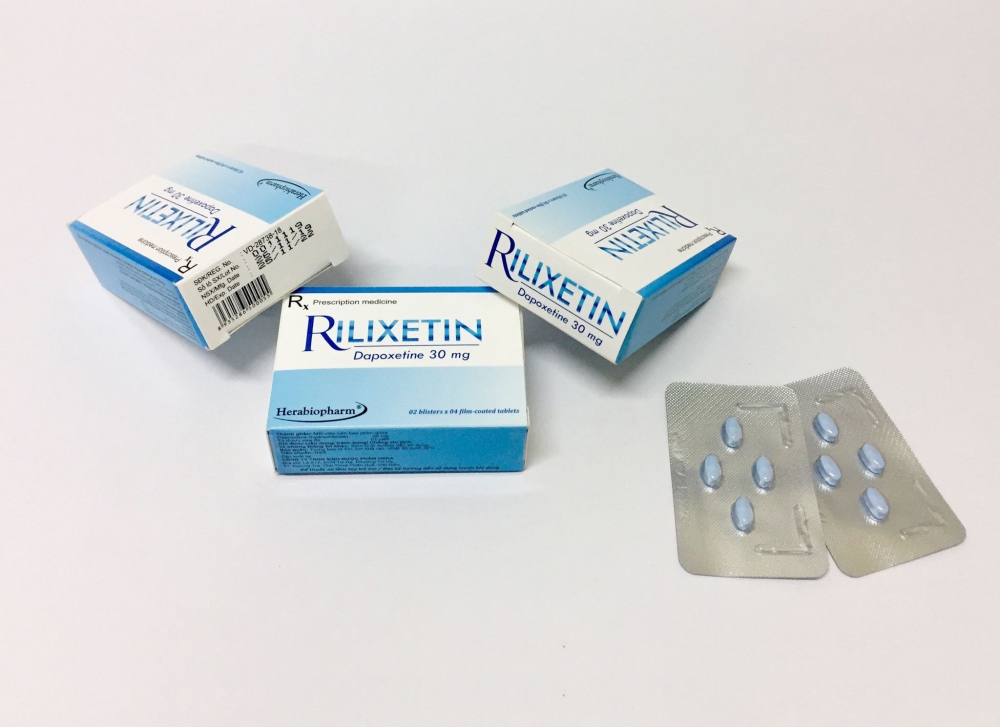Indications, posology and method of administration
THERAPEUTIC INDICATIONS
Dapoxetine is indicated for the treatment of premature ejaculation (PE) in adult men aged 18 to 64 years.
Dapoxetine should only be prescribed to patients who meet all the following criteria:
- An intravaginal ejaculatory latency time (IELT) of less than two minutes.
- Persistent or recurrent ejaculation with minimal sexual stimulation before, on, or shortly after penetration and before the patient wishes.
- Marked personal distress or interpersonal difficulty as a consequence of PE.
- Poor control over ejaculation.
- A history of premature ejaculation in the majority of intercourse attempts over the prior 6 months.
Dapoxetine should be administered only as on-demand treatment before anticipated sexual activity. Dapoxetine should not be prescribed to delay ejaculation in men who have not been diagnosed with PE.
POSOLOGY AND METHOD OF ADMINISTRATION
Posology:
- Adult men (aged 18 to 64 years):
The recommended starting dose for all patients is 30 mg, taken as needed approximately 1 to 3 hours prior to sexual activity. Treatment with dapoxetine should not be initiated with the 60 mg dose.
Dapoxetine is not intended for continuous daily use. Dapoxetine should be taken only when sexual activity is anticipated. Dapoxetine must not be taken more frequently than once every 24 hours.
If the individual response to 30 mg is insufficient and the patient has not experienced moderate or severe adverse reactions or prodromal symptoms suggestive of syncope, the dose may be increased to a maximum recommended dose of 60 mg taken as needed approximately 1 to 3 hours prior to sexual activity. The incidence and severity of adverse events is higher with the 60 mg dose.
If the patient experienced orthostatic reactions on the starting dose, no dose escalation to 60 mg should be performed.
A careful appraisal of individual benefit risk of dapoxetine should be performed by the physician after the first four weeks of treatment (or at least after 6 doses of treatment) to determine whether continuing treatment with dapoxetine is appropriate.
- Patients with renal impairment:
Caution is advised in patients with mild or moderate renal impairment. Dapoxetine is not recommended for use in patients with severe renal impairment.
- Patients with hepatic impairment:
Dapoxetine is contraindicated in patients with moderate and severe hepatic impairment.
Caution is advised if increasing the dose to 60 mg in patients known to be of CYP2D6 poor metabolizer genotype or in patients concomitantly treated with potent CYP2D6 inhibitors.
- Patients treated with moderate or potent inhibitors of CYP3A4:
Concomitant use of potent CYP3A4 inhibitors is contraindicated. The dose should be restricted to 30 mg in patients concomitantly treated with moderate CYP3A4 inhibitors and caution is advised.
Method of administration:
For oral use. Tablets should be swallowed whole to avoid the bitter taste. It is recommended that tablets be taken with at least one full glass of water. Dapoxetine may be taken with or without food.
CONTRAINDICATIONS
- Hypersensitivity to the active substance or to any of the excipients.
- Significant pathological cardiac conditions such as:
Heart failure (NYHA class II-IV).
Conduction abnormalities such as AV block or sick sinus syndrome.
Significant ischemic heart disease.
Significant valvular disease.
A history of syncope.
- A history of mania or severe depression.
- Concomitant treatment with monoamine oxidase inhibitors (MAOIs), or within 14 days of discontinuing treatment with an MAOI. Similarly, an MAOI should not be administered within 7 days after dapoxetine has been discontinued.
- Concomitant treatment with thioridazine, or within 14 days of discontinuing treatment with thioridazine. Similarly, thioridazine should not be administered within 7 days after dapoxetine has been discontinued.
- Concomitant treatment with serotonin reuptake inhibitors [selective serotonin reuptake inhibitors (SSRIs), serotonin-norepinephrine reuptake inhibitors (SNRIs), tricyclic antidepressants (TCAs)] or other medicinal/herbal products with serotonergic effects [e.g., L-tryptophan, triptans, tramadol, linezolid, lithium, St. John's Wort (Hypericum perforatum)] or within 14 days of discontinuing treatment with these medicinal/herbal products. Similarly, these medicinal/herbal products should not be administered within 7 days after dapoxetine has been discontinued.
- Concomitant treatment of potent CYP3A4 inhibitors such as ketoconazole, itraconazole, ritonavir, saquinavir, telithromycin, nefazadone, nelfinavir, atazanavir, etc.
- Moderate and severe hepatic impairment.
